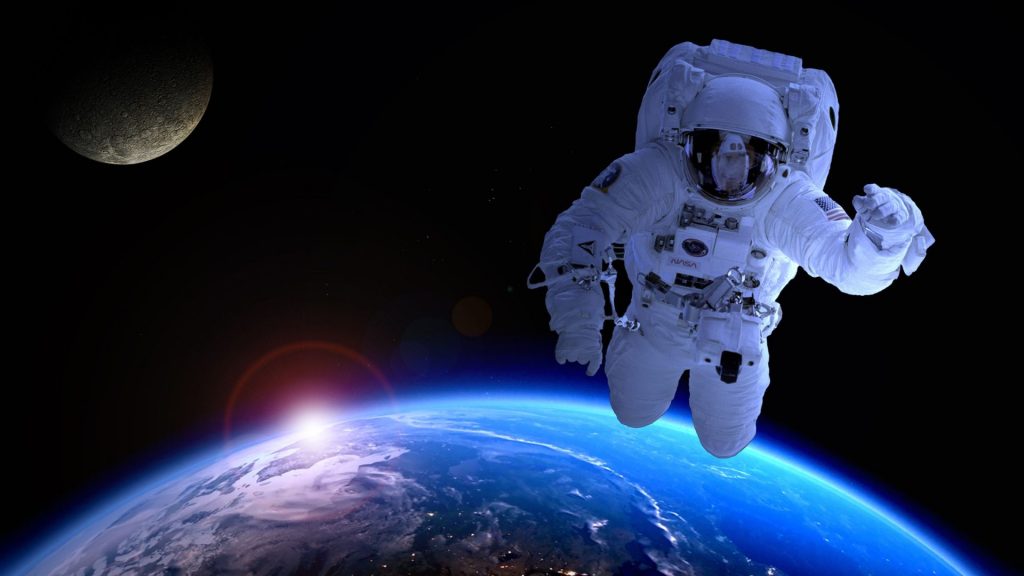Blast Off into Your Future: How Learning to Code Can Help You Become an Astronaut
06/08/24
Have you ever looked up at the night sky and dreamed of exploring the stars? Do you imagine what it would be like to float in zero gravity, conduct experiments in space, or even walk on another planet? If you’ve ever thought about becoming an astronaut, you’re not alone. Many kids dream of joining the ranks of famous astronauts and exploring the final frontier. But did you know that learning to code can be a key step in reaching that dream? Let’s explore how coding can help you become an astronaut and explore the fascinating world of space exploration.

The Role of Coding in Space Exploration
Astronauts do a lot more than just travel to space. They conduct scientific experiments, navigate spacecraft, and communicate with mission control. Many of these tasks require a solid understanding of technology and coding. Learning to code can equip you with the skills needed to solve complex problems, automate tasks, and analyze data—essential skills for any astronaut.
The European Space Agency: Pioneers in Space Exploration
The European Space Agency (ESA) is at the forefront of space exploration. Founded in 1975, ESA has achieved remarkable milestones, including sending astronauts to the International Space Station (ISS), exploring other planets, and developing cutting-edge space technology. Some of the notable European astronauts include:
- Samantha Cristoforetti: Known for her record-breaking mission to the ISS, where she spent 199 days in space.
- Alexander Gerst: A geophysicist who has participated in multiple space missions and conducted numerous scientific experiments aboard the ISS.
- Luca Parmitano: The first Italian astronaut to command the ISS, known for his contributions to spacewalks and scientific research.
These astronauts not only inspire us with their achievements but also highlight the importance of technical skills, including coding, in their daily work.
How Coding Helps Astronauts
- Automating Tasks: Space missions involve repetitive tasks that can be automated through coding. For example, astronauts use scripts to automate data collection and analysis, saving time and reducing errors.
- Analyzing Data: Astronauts conduct a variety of experiments in space. Coding helps them analyze the data collected from these experiments quickly and accurately.
- Operating Spacecraft: Modern spacecraft are equipped with advanced computer systems that require programming knowledge to operate and troubleshoot.
- Simulating Missions: Before launching into space, astronauts participate in simulations to prepare for various scenarios. These simulations are often developed using coding, allowing astronauts to practice and refine their skills.
Getting Started with Coding
Now that you understand the importance of coding in space exploration, you might be wondering how to get started. Here are some practical steps to begin your coding journey:
- Participate in Code Week Activities: Code Week is an annual event that promotes coding and digital literacy. By participating in Code Week activities, you can join coding workshops, meet like-minded peers, and get hands-on experience with coding projects.
- Learn Online: There are many online platforms where you can learn coding for free. Websites like Scratch, Code.org, and Khan Academy offer beginner-friendly courses that teach the basics of programming.
- Join a Coding Club: Many schools and communities have coding clubs where you can learn and practice coding with others. Joining a club can provide you with additional support and motivation.
- Experiment with Projects: Start with small projects like creating a simple game or a website. As you become more comfortable with coding, you can take on more complex projects that challenge your skills.
Inspiring Stories of Astronauts and Coding
To inspire you further, here are some stories of astronauts who have used their coding skills to excel in their careers:
- Chris Hadfield: A former commander of the ISS, Hadfield used his coding skills to troubleshoot technical issues and conduct experiments in space. He often talks about the importance of STEM (science, technology, engineering, and mathematics) education, including coding, in his public appearances.
- Peggy Whitson: The first female commander of the ISS, Whitson has a background in biochemistry and has conducted numerous scientific experiments in space. Her ability to code and analyze data has been crucial in her research and space missions.
- Tim Peake: The first British ESA astronaut to visit the ISS, Peake has used his technical skills to operate spacecraft systems and conduct scientific research. He actively promotes STEM education and encourages young people to learn coding.
The Future of Space Exploration
As technology continues to advance, the role of coding in space exploration will only become more significant. Future astronauts will need to navigate increasingly complex missions, operate advanced spacecraft, and analyze vast amounts of data. By learning to code, you’re not only preparing yourself for a potential career as an astronaut but also equipping yourself with valuable skills that are applicable in many other fields.
Becoming an astronaut is a challenging and exciting journey that requires a diverse set of skills. Learning to code is a crucial part of this journey, helping you develop problem-solving abilities, technical knowledge, and a deeper understanding of the technologies that drive space exploration. By starting with Code Week activities, online courses, coding clubs, and personal projects, you can take your first steps towards reaching your dream job.
Remember, the sky is not the limit—it’s just the beginning. So, grab your laptop, start coding, and prepare to explore the stars!
For more information on how to get started with coding and to participate in Code Week activities, visit codeweek.eu and the European Space Agency.
Happy coding, future astronauts!


